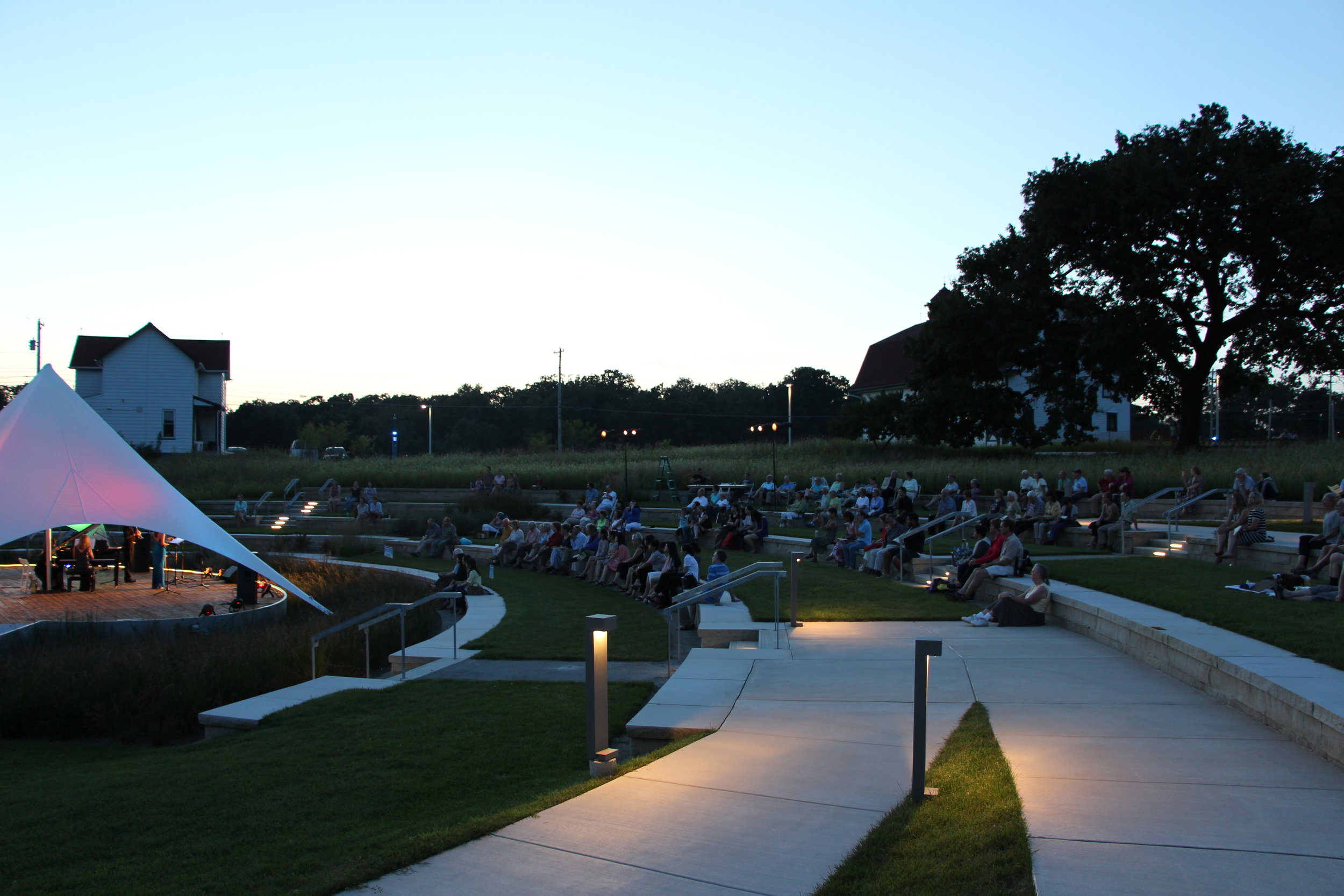Buildings & the land
Discover how built & natural systems can work together.
The first academic community in the world to incorporate sustainable design, living and learning from the ground up, Eden Hall is a living laboratory where the science, culture, economics, and politics of sustainability can be experimented with and explored in a uniquely hands-on way.
Eden Hall is first and foremost an accessible community. We serve as a model and demonstration site for developers and contractors, engaging everyone from ecotourists to elementary school children in educational and recreational activities.
"Eden Hall is designed to reach a vast set of audiences, to interface with the community, and to bring people to this place. I think that’s part of what makes it such a dynamic environment.”
— Sandy Mendler, principal, Mithun
The Field Lab at Eden Hall contains a classroom with water treatment monitoring station and an aquaculture lab.
The classroom in the Field Lab is the home base for learning. Typical course lectures can be conducted in the space, along with the analysis of field research conducted at outside locations.




The Hilda M. Willis Amphitheater is a unique performance space at Eden Hall Campus that provides a scenic and relaxed setting for campus and community events.
Carved into the natural landscape, the amphitheater offers pastoral southern views overlooking the adjacent orchard, field, and the rolling terrain of the North Hills.






Eden Hall Campus deploys a mix of innovative sustainable technologies, methods, and curricula, modeling new ways to implement sustainable design in affordable, beautiful and environmentally sensitive ways.

An underground geothermal heating system enables campus buildings to share heat energy. # of wells, depth of wells. This energy is also stored to provide heat during colder months and cooler air during warmer months.

Stormwater is managed by five rain gardens that collect and direct water flow to gravel walkways that make it easier for rainwater to reach the soil below, and a rainwater harvesting system that gathers and cleans the water and then uses it for crop irrigation. Eden Hall also treats wastewater onsite through a six-step process that mimics nature. The system can handle up to 6,000 gallons each day.

The high tunnel and greenhouses at Eden Hall Campus allow us to grow crops year-round. This continuous growing cycle supplies fresh food to Eden Hall and our Shadyside Campuses' kitchens.

Four-hundred photovoltaic panels turn solar energy into electricity. This presents a prime opportunity for car charging stations on campus, and gives commuters the incentive to move away from fossil fuel dependent vehicles.

Various waste options are encouraged at Eden Hall Campus. Where reusables can be used, they are, like in our flatware and drinkware used in the Barazzone center. Composting of food waste, along with compostible cups, lids, and utensils helps lessen the amount that goes to landfills. We make it easy to recycle paper, glass, cardboard and plastics recycling is across campus, and stations are even available to collect batteries, printer cartridges, and more.

Eden Hall Campus practices organic agricultural practices in its greenhouse, organic garden, and larger Alsalma field. Through continued practice and verification, Eden Hall Campus was granted a Certificate of Organic Operation from Pennsylvania Certified Organic. This Certificate guarantees that the Farm is compliant with the United States Department of Agriculture’s National Organic Program (7 CFR Part 205), and that products grown on the farm meet all organic standards.